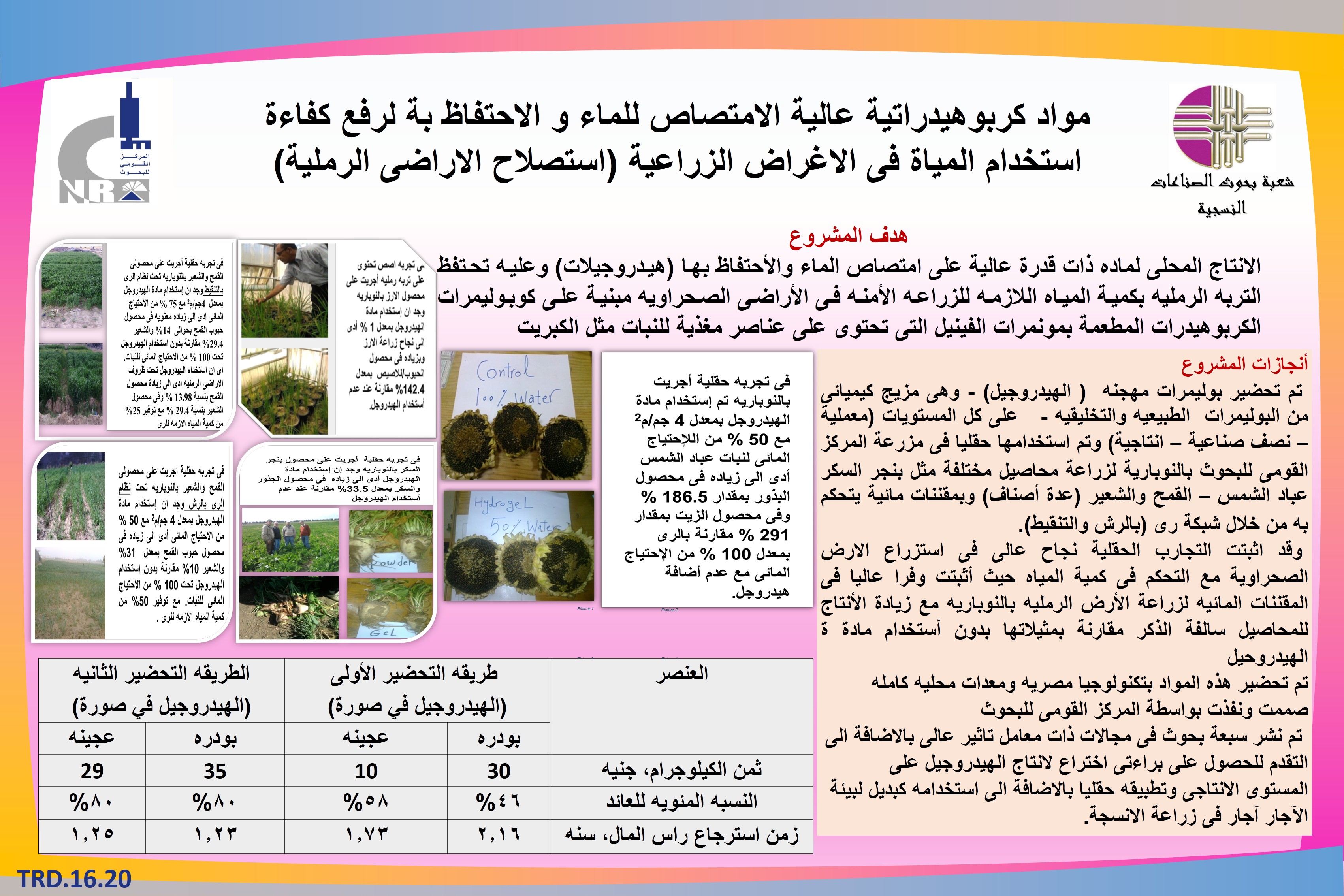Given the limited water scarcity in Egypt, and the high demand for this vital element for life, the Egyptian government resorted to reducing the pressure on the lands of the Nile Valley and the Delta by implementing programs to increase the agricultural area horizontally by reclamation desert lands. One of the primary foundations for achieving this program is the inevitability of improving and rationalizing the efficiency of water and land use, in particular the irrigated sandy soils. Accordingly, this research proposal aims to develop the production of a high-capacity material for water absorption and retention (hydrogels) based on carbohydrate polymers grafted with vinyl monomers and containing plant nutrients such as sulfur. That is by introducing strong acid sulfate groups that reduce the negative impact of water absorption when containing varying proportions of salts. The research project is presented in five main phases:
Phase 1: Bench scale experiments for selecting of the best operating conditions to prepare new acidic sulphate groups (cyanurates).
Phase 2: Preparation of hydrogel on bench scale by investigating two different methods: by introducing the former prepared acidic sulphate groups onto the starch prior to/ after the graft polymerization, followed by selection of the most suitable in terms of high efficiency of the produced hydrogel.
Phase 3: Taking advantage of the previous results, pilot scale experiments will be undertaken for the target hydrogel production as well as characterization of the final product in order to establish the best technology for its production.
Phase 4: Field trials by highly efficient agricultural team.
Phase 5: Cost Estimation for the produced hydrogel.
Based on the expertise of the integrated research team- consisting of chemists, chemical and agricultural engineers, as well as the possibilities available for production in the Textile Research Division of the National Research Center, it is expected that the objectives of the project will be successfully implemented. The most important outputs expected to be achieved by this project are: (a) Maximizing the utilization of soil fertilizers by mechanically and chemically integrating hydrogel, to prevent their melting, leakage and loss by washing in the soil layers, (b) Reducing the quantities of chemical fertilizers, added in natural form, thereby reducing the cost of crops production, (c) Using the produced hydrogen leads to the improvement of many agricultural crops, in increasing production such as mangoes, bananas, olives…. The budget required for the implementation of this project within two years is estimated at 2,410,000 LE







